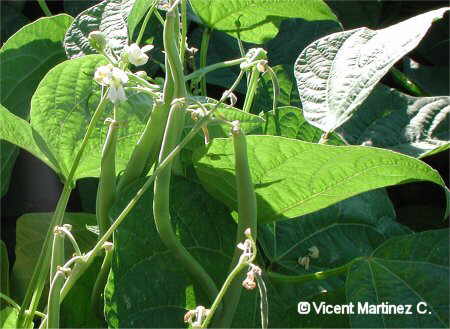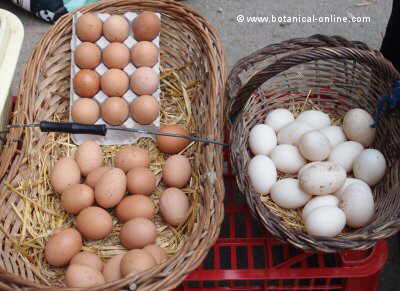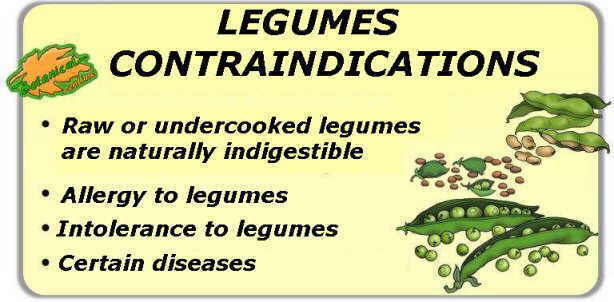Contents
Energetic value of the food
What is the energy value of food?
Food is made up of nutrients. Nutrients are small molecules, which when digested by our body produce energy, which the body uses to work, to exercise, to beat the heart, to think, etc.
The calorie content of foods is due to their composition of proteins, fats and carbohydrates.
Energy that each nutrient provides us
Energy from food comes mainly from three types of caloric nutrients:
- Carbohydrates: They are energetic nutrients and easily digestible. They provide us with 4 kcal for each gram. For example, a packet of sugar (8 g.) provides 32 kcal.
*More information: Benefits of sugar
- Fats: they are very energetic nutrients. They provide us with 9 kcal per gram, that is, more than twice as much as carbohydrates.
For example, a tablespoon of oil (10 g.) provides us with 90 kcal.
- Proteins: They are nutrients that do NOT have an energy function, but rather our organism uses them to make hormones, muscles, etc. However, the body is able to obtain energy from proteins, if necessary.
Proteins provide us with 4 kcal per gram, just like carbohydrates.
In nature there are no foods that contain only proteins, carbohydrates or fats. All foods contain a mixture of these nutrients, and their energy value depends on whichever one predominates the most.
Calories of main foods according to food groups?
See the following examples to understand the caloric value of different types of foods:
CALORIES IN FOODS | ||||||||||||||||||||||||||||||||||||||||
VEGETABLES AND GREEN VEGETABLESVegetables are foods with very few calories. These foods mainly provide us with fiber, vitamins and antioxidant minerals, which our body needs to stay healthy.
| ||||||||||||||||||||||||||||||||||||||||
TUBERSTubers are energy reserve elements of plants. These foods are rich in carbohydrates, B vitamins and fiber.
| ||||||||||||||||||||||||||||||||||||||||
FRUITSFruits are very healthy energy foods. They combine their natural sugars with antioxidant vitamins, as well as fiber and a high percentage of water, which guarantees good hydration. They should be present in all diets, especially in diets for athletes, students and children. Citrus fruits are usually more recommended in weight loss diets, because they contain more vitamin C and fewer calories than other fruits. Among the citrus group we can mention grapefruit, orange, lemon, mandarin…, etc.
LOW CALORIE FRUITSThere are certain fruits that provide us with very few calories. These types of fruits are recommended in weight loss diets, since they have antioxidant vitamins and few sugars, as well as fiber and water, which provide satiety. These low-calorie fruits are: blueberries, raspberries, currants, strawberries, watermelon, melon, guava and kiwi.
| ||||||||||||||||||||||||||||||||||||||||
DRY FRUITDue to their high fat content (the most caloric nutrient), nuts are very caloric foods. However, these foods are rich in healthy fats, vegetable proteins and antioxidant minerals. These foods are often labeled as unhealthy because they are more energetic, although this is not the case. A handful of almonds (20 units) gives us 110 kcal, almost the same as an apple!
| ||||||||||||||||||||||||||||||||||||||||
DRIED FRUITWithin this group are orejones (dried apricots), raisins, coconut or dates. These foods are caloric because they contain all “concentrated” fruit sugars (dehydrated fruits). They are important for their mineral content, especially calcium, as well as fiber. Due to its calcium content, they are recommended in diets that must increase the intake of this mineral, such as athletes, pregnant women and in any diet for osteoporosis.
| ||||||||||||||||||||||||||||||||||||||||
BREADBread is a refined, energetic food that contains calories provided by carbohydrates. It also contains, although to a lesser extent, proteins and fats. Depending on whether it is wholemeal or not, it can contain more fiber.
Bread can be part of a balanced and slimming diet, since it provides fiber and long-lasting energy of slow absorption, which combats food cravings.
| ||||||||||||||||||||||||||||||||||||||||
DAIRYDairy products are very important foods, especially in vegetarian diets. They are an excellent source of protein and calcium. In addition, yogurt provides healthy bacteria for the intestine. There is a great diversity of dairy products, among which we recommend skimmed milk for people who need to control their cholesterol.
| ||||||||||||||||||||||||||||||||||||||||
OIL
Oil is composed entirely of fat, and provides us with exactly 9 kcal per gram. All oils have the same caloric intake, but different quality of fat. The most recommended is olive oil. This is because all oils are an extraction of fat: from the fruit of the olive tree (olive oil), from sunflower seeds (sunflower oil), from corn (corn oil), from nuts (walnut oil), from flax seeds (flax oil), from soybeans (soybean oil), from peanuts (peanut oil), from sesame seeds (sesame oil), etc.
| ||||||||||||||||||||||||||||||||||||||||
EGGSEggs are mainly a protein food. One egg provides us with half of the proteins that, for example, a chicken breast contains. It also contains vitamin B12 and important minerals such as zinc.
|
![]() More information on calories
More information on calories








